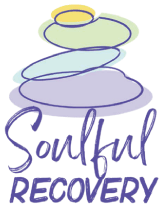Opioid Addiction
Opioid Addiction Treatment
Opioids (synthetic) and opiates (naturally derived) are among the most commonly prescribed drugs in the U.S. for pain management. A research study conducted by the National Institute of Drug Abuse concluded that roughly 8-12% of people prescribed opioids for pain management develop an opioid use disorder. Additionally, 80% of all heroin users surveyed reported that they first misused opioids. According to SAMHSA, approximately 2.3 million people ages 12 and older experienced opioid use disorder in 2020. Regardless of whether the chemical makeup is naturally derived or synthetic, the longer someone uses opioids, the more likely they are to develop a dependency.
Despite these statistics, opioids and opiates remain a primary means to help people overcome short term pain related to surgery or an accident. However, when used for long term pain management, it can create a lifelong opioid use disorder or evolve into different drug addictions. Opioids work by binding to opioid receptors in the brain and body. They release a high amount of dopamine causing euphoria and body relaxation. After prolonged and repeated use, people can develop a dependency on these substances. The result of opioid dependency can be addiction, overdose and even death.
Types of Opioids and Opiates
Pharmacological companies have created numerous variations of opioids and opiate drugs. Some of the most common opioid derivatives include, but are not limited too:
- Fentanyl
- Buprenorphine
- Morphine
- Codeine
- Oxycodone (Oxycontin)
- Hydrocodone (Vicodin)
- Methadone
- Tramadol
Signs And Symptoms Of Opioid Addiction
There is no single sign to say for sure whether or not someone is addicted to opioids. However, a combination of some of these signs may reveal that your loved one is struggling with opioid addiction:

- Pinpoint pupils
- Shallow breathing
- Flushed skin
- Increased agitation or irritability
- Mood swings
- Social isolation
- Depiction about one’s use
- Unwillingness or inability to stop
- Persistent use despite negative consequences to one’s personal or professional life
- Increased tolerance resulting in having to use more and more to achieve the desired effect

If you or someone you know is exhibiting signs or symptoms associated with opioid use, our team is here. There are a number of evidenced based treatment approaches to help people struggling with opioid to overcome their addiction. To learn more, contact our team today and begin your journey in recovery.
Find Your Way Today...



